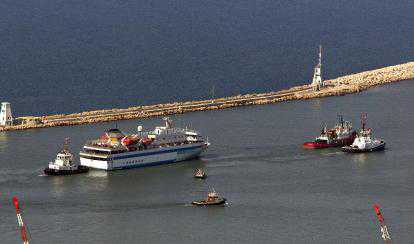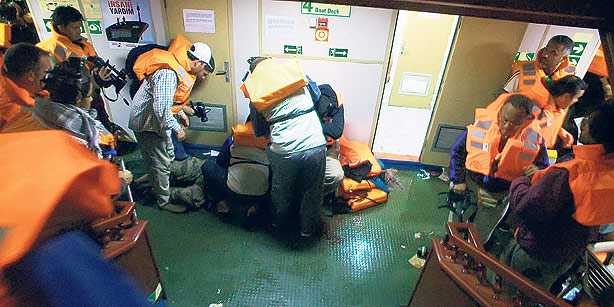Erdogan says Israel must show “sincerity” by apologizing, paying damages for raid on “Mavi Marmara,” before ties with Turkey can improve.
Officials from Israel and Turkey met in Geneva on Sunday to help reduce tensions, according to a CNN report, as Turkish Prime Minister Recep Tayyip Erdoğan demanded an apology for the IDF raid on the Mavi Marmara. Erdogan also stated on Sunday that Israel must pay damages to those wounded and the families of those killed during the operation.
Yosef Ciechanover, the Israeli representative on the UN flotilla probe, was reportedly asked by Prime Minister Binyamin Netanyahu to travel to Geneva to attend the meeting.
“The two met in order to find ways to promote appeasement and diminish the tension between the two countries,” an Israeli official told CNN.
“We regretted the deterioration of the relationship between the two countries and we of course like to see an improvement of the relations,” he added.
On Sunday, Erdogan stated that despite Turkey’s recent provision of firefighting assistance to Israel’s efforts to the control the blazes that broke out in the Carmel region, a new page in Turco-Israeli relations would be possible without addressing the outstanding Turkish requests made in the aftermath of the failed May 31 attempt to break the Gaza blockade.”If a hand is outstretched towards us, we will not leave it hanging in the air,” Erdogan was quoted by Israel Radio as saying in a speech delivered in central Turkey. He continued, ” but we want to see an indication that it is a sincere gesture.”
Also on Sunday, Army Radio reported on a Turkish CNN interview with Erdogan, where the leader explained Ankara’s decision to send aid to Israel.
“We will not stand aside at a time when people are being killed and nature destroyed,” Erdogan was quoted as saying. “A day will come when we will turn the page [on diplomatic relations], but first Israel must apologize for the incidents of the Gaza flotilla and compensate [the families] of those killed.”
On Friday, Prime Minister Binyamin Netanyahu thanked Erdogan for sending airplanes to help battle the Carmel brush-fire which had already claimed more than 40 lives.
“I really appreciate Turkey’s help, we will find a way to express our appreciation.” The prime minister’s comments came during a visit to the Carmel fire injured at Rambam hospital in Haifa.
He later added that he believed Ankara’s granting of aid to Israel “will serve as an opening to improve relations between Israel and Turkey.”





